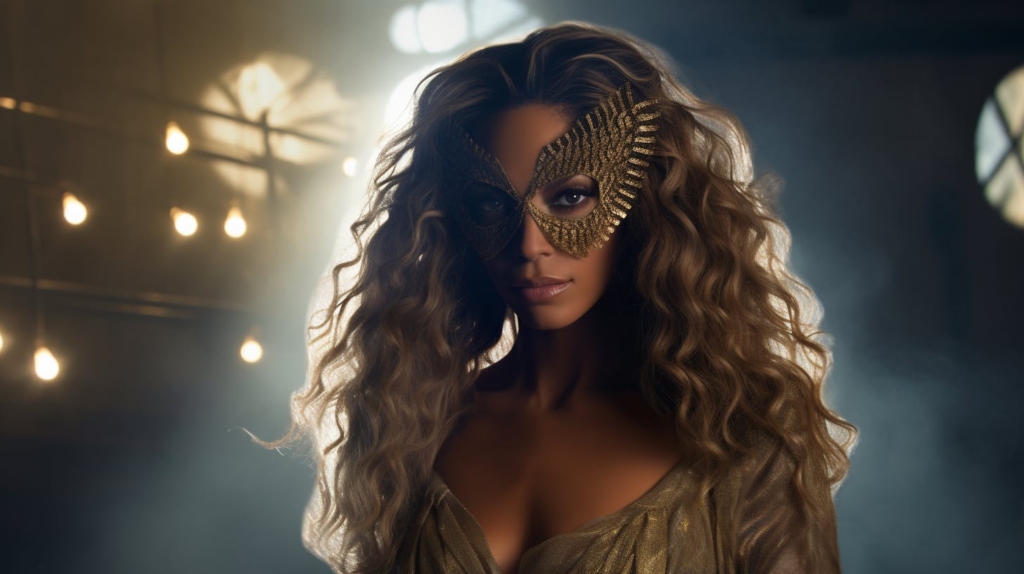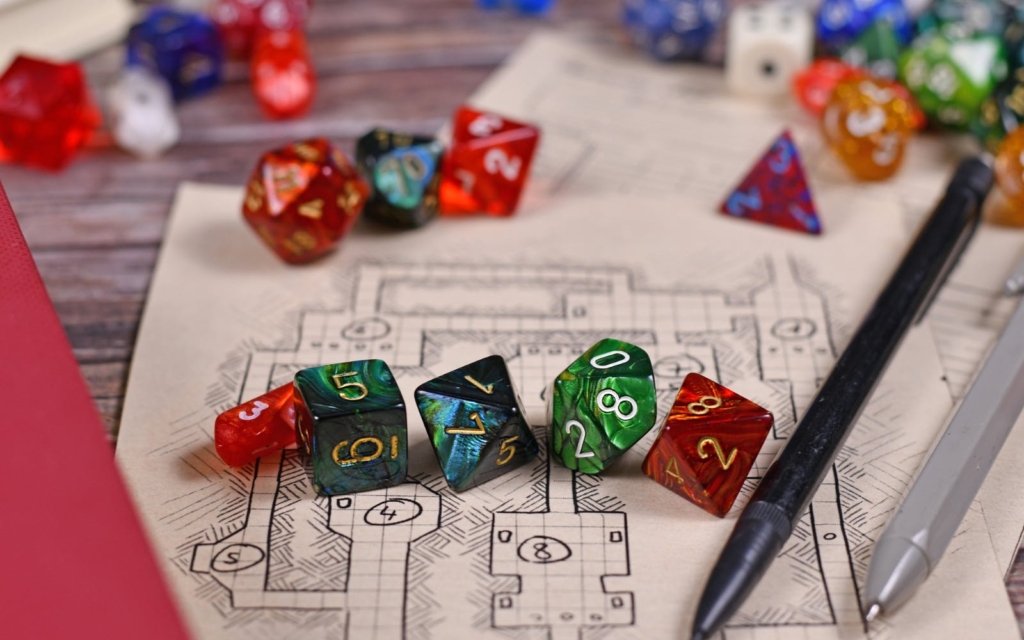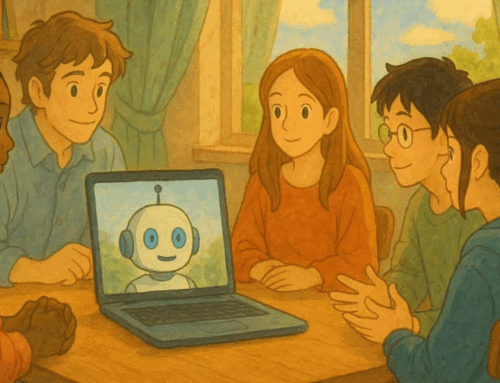The singer Beyoncé Knowles has an alter-ego she calls Sasha Fierce. When she was young in her career, and nervous about a big show, she would internally decide it was not Beyoncé going onstage, it was Sasha Fierce.
This character was brave, and strong, and confident. Assuming this persona allowed her to handle difficult challenges, because she was playing a game as a character, rather than herself.

Creating a persona can help you handle something difficult or challenging. When I was the understudy for Romeo in my first Equity show, I needed an alter-ego. Professional Shakespeare productions employing members of the Actors Equity Association (the labor union that represents theatrical professionals and sets standards for live performances) require understudies for critical roles.
I had performed the role of Romeo previously, in a non-Equity production, so I knew all of the lines. I was cast as a background character, and memorized all of Romeo’s blocking so I could step in to replace the lead actor if something happened to him during the run.
As the ‘third spear holder from the left’ (a typical term for background actors in a play), I didn’t have very many interesting things to do. One day during rehearsal, the Capulets and the Montagues were having a stylized sword fight in the background, while Mercutio and Romeo were waxing poetic downstage. I found the choreography to be trite and boring, and the rehearsal was stopped when the fight choreographer called me out on it.
“You look bored,” he said. “You need to seem engaged, you’re in a sword fight.”
At first, I scoffed. We were fighting in slow motion, and we had two moves: strike high, and strike low. There was little purpose to our fight other than window dressing. With the skills I had learned at the Dell’Arte International School of Physical Theater, I wanted to be doing flips, complicated swordplay, something exciting.
But then I realized, that was not the game I was playing.
This game I was playing was to set a mood, without being noticeable. The audience needed to pay attention to a conversation happening downstage, not to the minor actors upstage. We were quite literally the background, and the more convincing I could make the background, the better the foreground would impact the audience.
So I chose a new character. Instead of being Caelan the disgruntled and under-appreciated actor, I decided to be Buster, the emotional slow-motion Capulet. I discarded my personal feelings about my work, and chose a persona who could bring the right mix of emotions and activity that would help me play the best.
What you play as affects how you play.
In the game of Monopoly, there is often a fight over which player gets to be the race car. The board game comes with a selection of tokens that represent each player – an old boot, a thimble, a top hat, a wheelbarrow, and a clothing iron were other tokens you could choose in the original set. The race car is the most popular, because it gives the illusion of movement (and momentum) as the players race each other around the board.

The token you choose to represent you does not affect your gameplay at all, but still, 1 in 4 people prefer the car over other tokens, because the token chosen in a game says something about the player (to the player).
Many games begin with creating a character, choosing a token, or selecting an avatar to represent you as you play. This is the choice that begins the game.
Once you have decided what will represent you as you play, it is no longer just you playing – it is the race car turning fast around the corners of the board, or the token that is your favorite color, or the fantastical character with attributes that you assign. This choice personalizes your gameplay to you.
Your Character Changes How You Play
When you play any roleplaying game, the first step is character creation. In Dungeons & Dragons, you decide your race and class, and roll dice for statistics that become your ability scores.

You might play as a half-orc barbarian with a 20 Strength score and 8 Intelligence, or you could play as an elven wizard with 19 Intelligence and 7 Constitution. The first character would be the tank, fighting everyone in melee attacks, taking most of the damage in battle; the second character would be farther from conflict, casting spells on allies to support them, or striking foes from afar with ranged attacks.
These two very different modes of play – fighting up front, or spells from the back – can be accomplished in the same game. These characters could even switch places, if they chose. The physically weak elven wizard could go toe-to-toe with a pack of goblins, while the half-orc barbarian stays to the back to attack by throwing huge barrels. But this would not take advantage of each character’s inherent attributes.
As a player, you may have advantages and disadvantages that you recognize about yourself. You may be impulsive, or clever, or diligent, or impatient. These qualities all affect how you play. Choosing the right character can help you play well.
When you are engaged in your work, you don’t have to limit yourself to your own characteristics. You can decide to take on an avatar, to invite the qualities that would serve you well. If your work is a game, and you are the player, you can choose the character that helps you play better.
Cosplaying Normies
I once spent three years selling insurance. (In case you are wondering, yes, it was as boring as it sounds.) It was my first six-figure job, and I was good at it. I won a bunch of sales awards, and set my family up on firm financial footing for the first time, but it was dreary to spend so much time in paperwork.

Every day, I filled out forms for the policies I wrote for my clients. My goal was to sell ten policies every week, and every policy came with anywhere from 3-20 pages of paperwork to process. There were parts I liked about the job – I could drive around to meet with new people all day, my schedule was flexible, and I set up booths at street fairs for my lead generation. A lot of my work was outside and interactive, but still: I had to wear a tie to work every day.
At first I took this on as a costume, as part of the character I played. But in Portland, where I lived, nobody wore ties except for squares and normies. There weren’t many of those in Portland, so my big sideburns and gregarious personality didn’t match my tie.
Wearing that costume felt very fake, and I grew to resent it. So I developed a new costume.

During this period of my life, I spent a lot of my free time practicing the art of parkour. The best description I’ve heard of parkour is ‘urban acrobatics.’ Between my boring insurance paperwork appointments, I would leave my tie and dress shirt in my car, and climb buildings and bridges to escape my normie life.
People began to notice me on ledges and trusses, and I didn’t want to add a trespassing charge onto my criminal record, so I wore a costume.
I found an orange construction vest with great pockets, a bright orange construction helmet, and dark goggles to obscure my identity. Dressed in bright orange reflective gear, anyone who saw me climbing the Broadway Bridge during lunch hour assumed I was supposed to be there.
Because I need more creativity in my work than insurance could offer me, I started making videos and leaving treasure hunts for other people to find around the city of Portland. I named my character Danger Man, and made a bunch of YouTube videos. (They were not very good.)

The character I had to play at work – the normie who wears a tie – began to bother me. So I made a new character, and played a new game. This gave me the creative inspiration I craved, and made the boring game I had to play endurable.
Who Could You Be?
In the game of life, this is our only chance to play – right now.
If you don’t like the character you have played so far, you can change it.
In Monopoly, there is no rule against changing your token mid-game. And in life, there is no law against changing your identity and becoming someone else.
It could be helpful to declare your new persona, or you might want to keep this change private. Nobody else needs to know if you swap one character for another. (I didn’t tell anyone. 😉) You could create a secret alter-ego, that you use to play the game you want, how you want to play.
“Doesn’t everything die at last, and too soon? Tell me, what is it you plan to do with your one wild and precious life?” – Mary Oliver
If you were playing the game of life to the best of your ability, who could you be?
This article is an excerpt from my next book, Playful Productivity. To get notified when it’s ready, sign up for the wait list here.





Leave A Comment